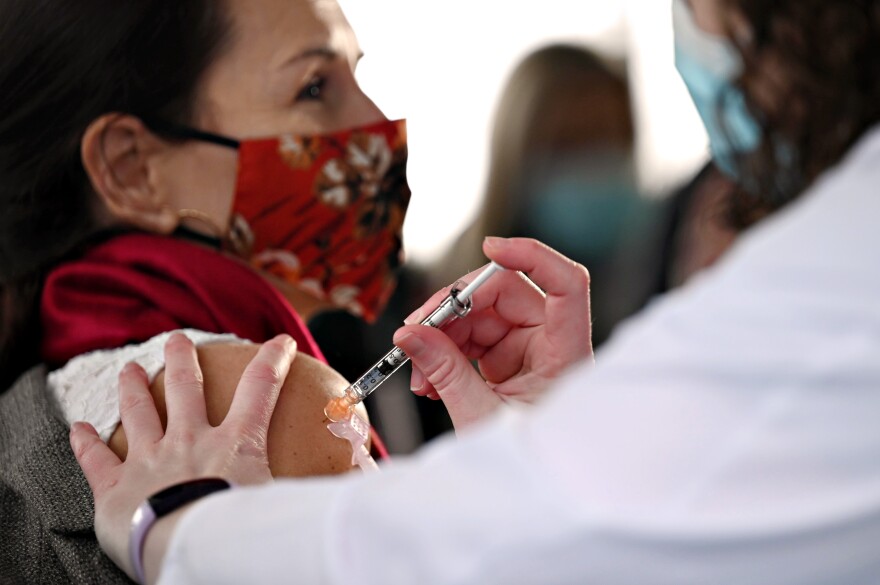As the COVID-19 omicron variant sweeps through Connecticut, health providers and hospitals are preparing for surges in the coming weeks. But, officials say they have tools that are keeping fewer people in the hospital, compared to this time last year.
Dr. Ajay Kumar, Hartford HealthCare chief clinical officer, said the state has seen a recent uptick in hospitalization and it is concerning. However, the portion of ICU patients is smaller.
“Because of the widespread use of vaccines and hopefully boosters as well, individuals who are getting sick at this time are requiring less and less ICU,” Kumar said.
Kumar added that the health system does not yet know what percentage of hospitalized patients specifically have the omicron variant, as hospitals continue to also see new cases of the delta variant.
The health system does not currently have capacity issues, according to Kumar. He says routine medical services will remain open, but that could change going forward.
Dr. Ulysses Wu told reporters that early data indicates the omicron variant is highly contagious, but they’re still figuring out if it will cause more severe illness.
“So what we’re going to be looking at is not necessarily cases, but we’re going to be looking at cases juxtaposed on hospitalizations as well as ICU, those who are needing admission to the ICU,” Wu said. “That’s really ultimately what’s going to determine where we go with omicron.”
In addition to vaccines and boosters, another new tool is coming to the hospital's disposal, which officials say could help keep patients out of the ICU. A team at Hartford HealthCare is ready for federal guidelines so they can begin prescribing a new at-home antiviral treatment for COVID-19, which was approved by the FDA on Wednesday.
Eric Arlia, vice president of pharmacy services, told reporters his team is developing a process to connect with patients federal officials deem eligible, who are COVID-positive, so they can prescribe the drug, a pill taken orally, as soon as possible.
“As most antivirals go, the quicker you start treatment the better they are effective,” Arlia said. “So really, ideally, you want to treat people within the first three days of symptom onsets.”
The antiviral treatment would let physicians treat people completely from home, without overwhelming the health system.
“No infusions or hospitalizations required,” Arlia said.

